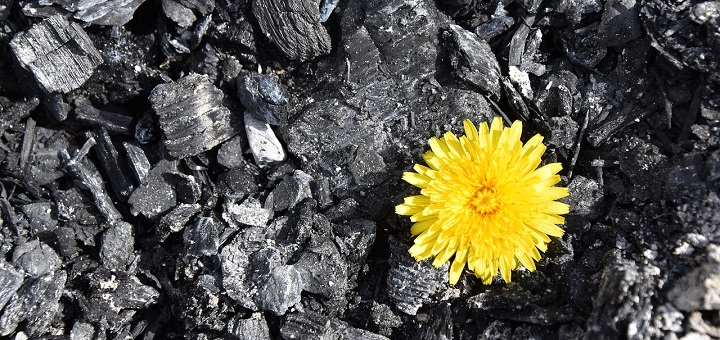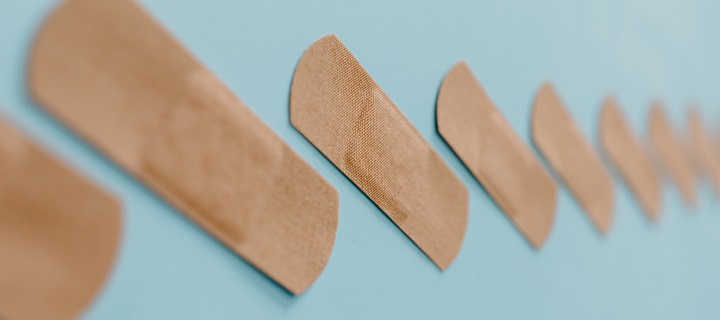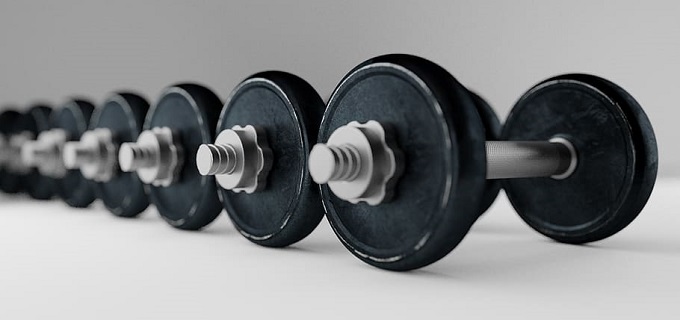On Resilience
Published: 2023-05-21Resilience is necessary for success. If you are successful without failure then you are lucky. Do you agree?
The often-tattooed phrase 'What doesn't kill you makes you stronger' is a popular mantra; derived from Nietzsche ("That which does not kill us makes us stronger"), it certainly holds some truth, but in my opinion can be interpreted in the extreme. You don't need to suffer an existential crisis to grow and become stronger, and for some it may not even be true. Which is why I think it is valuable to learn how to fail and how to get up and carry on - but only if you don't fall again in the same way.

Shit Happens
I had a rough couple of months recently, and still have a road ahead of me. 2 months ago I tore my ACL and partially tore another ligament. After a month in a brace I had another month of rehab to build up my knee again, and prepare for reconstructive surgery.
The thing that I now realise, looking back to when I was lying in the hospital gown in the pre-op room, is how unprepared I was. Perhaps the bigger problem was that I thought I was prepared. I had gone through a successful initial rehab that progressed faster than I thought it would, and so naturally I thought the same would happen again. But my false confidence saw me one week later in tears on my Physiotherapist's treatment bed.
I had underestimated the effect of surgery, of lingering daily pain and of the sudden contrast between having just executed my advanced rehab exercises with flying colours to struggling through the most basic exercises only days later. I had also under-educated myself on the procedure itself, which left me minus one hamstring tendon and self-injecting blood-thinners every day for 2 weeks.
To explain a bit further: before the injury I had no quantitative measure of my physical ability. Leading up to the surgery, having gone through a rehab program, I had constructed a mental yard-stick of my abilities; but a few days later it had been smashed to pieces.
But mine is not a standout story. We may think that our narrative is one deserving of a wide sympathetic audience, but it does not. With every follow-up appointment, I walked past people in the same boat as myself, wearing their own braces, casts and supports. When placed amongst the individual calamities of the world, our own really only deserves a 'never mind' and a pat on the back. Our award-winning Hollywood movie only plays out in our own head, with only our closest family in the audience.
But that's not to say it should be thrown away.

An Enduring Idea
"Why do we fall?" says Alfred to Bruce Wayne throughout his life, in Chris Nolan's 'Batman' trilogy. "So we can learn to pick ourselves up". The building of character through trials of resilience can be found from modern Hollywood blockbusters all the way back to the ancient Greek philosophers, such as the original Stoic Marcus Aurelius who wrote:
You have power over your mind - not outside events. Realize this, and you will find strength.
What he says in these few words is that our minds and our will are stronger than the events that befall us.
You can say that it is a mainstay of the modern character arc - an every-day person finds themself in a bad situation and discovers he or she has the ability to bounce back as a hero. It makes for a great story. For many of us that story is actually real, but the situations are much less dramatic. In my case an unexpected physical trauma. In other cases perhaps a theft, a break-up or a missed deadline. Sometimes the situation is much worse, but the redeeming character trait is still resilience.
Lessons in Viet Nam
Living in Vietnam has taught me something about resilience. Unsurprisingly, because of Hollywood movies, most knowledge of people outside of Viet Nam is only of the Vietnam War. However the "American war", as it is called inside Viet Nam, was only one in many centuries, or in fact millennia, of Viet Nam's struggle against invaders through history. Ignoring the fact that Viet Nam had fought off the Chinese and the Mongols multiple times, when the Americans came they had just finished fighting off the French, the Japanese and then the French again!
Viet Nam certainly built resilience through resistance.
But even then it wasn't over. the economic impact of the war meant that the country was in very poor shape a decade later. The government to its credit brought in sweeping reforms which threw out some of the central themes of their Communist origins and replaced them with open markets, producing startling effects; within a couple of decades they had gone from relying on international hand-outs to inviting foreign countries to invest in their new economy.
Foresight and innovation despite suffering. Is this not a definition of resilience?
Rule One
So what is it to be resilient? I think it comes down to two things.
The first is training.

Sometimes, things happen to us that are out of our control. I tend to argue that due to the advancement of our society, these events have more of an impact on us now because we are simply not used to them happening to us any more. Even 100 years ago, there would have been plenty more things to befall the average human being going about their daily life. I think the lower frequency of these things in some pockets of society have simply resulted in a lack of 'training'.
Resilience, along with many human abilities is like a muscle. If you have never suffered a setback or unfortunate event, you will just simply not know what to do about it.
Khalil Gibran wrote:
Out of suffering have emerged the strongest souls; the most massive characters are seared with scars.
Just like allowing kids to fall in playgrounds then teaching them to get up and keep playing, exposure to these setbacks, and realising that they affect us less than we think, slowly builds our ability to endure them, like a snowball rolling down a hill.
How do we train? Just take a few more risks. They don't have to be big. You should realise that some will fail, but it should not put you off. Living a risk-free life is surely a pathway to living in an emotional eggshell.
Of course you should not deliberately rush into situations with the biggest consequences, or set yourself up for failure. The risk involved in every decision should simply be recognised, and your level of tolerance should just be moved up a notch every now and again. In psychology this is referred to as the 'Goldilocks Zone': not to difficult and not to easy. At the edge of this zone, you will sometimes fail, but the percentage of decisions that do fail will then build your resilience muscle bit-by-bit without destroying your motivation.
The corollary of this is of course that you will need to learn about your choices. After all, if you end up in the same situation twice through the same choices then you will have to put your choices somewhere in the circle of blame. In my case I understand now that although I don't regret opting for reconstructive surgery, I was probably a little blasé about understanding it fully.
Rule Two
The second rule is just to carry on.
It's not about how low you allow yourself to get. You may swear, you may rant, you may feel despair and end up crying on your physiotherapist's couch. All of these are ok, there is no shame despite what some people may think. As long as at the end of it you get up and carry on.
Having just read James Clear's "Atomic Habits", I can identify with a passage he has about "just showing up". He writes:
really successful people feel the same lack of motivation as everyone else. The difference is that they still find a way to show up...
That difference comes down to resilience.
But don't think that you can always carry on alone. Without the muscle-training, you might not have it in you. So you should also build up your friends and use them, and encourage them to use you, because sometimes the tougher exercises need a training partner.
At the end of the day, resilience will not only help you deal with big, unexpected life events, it will also help you to push through into new unexplored places, knowing that if you fail, it is just another scar that will heal. As Churchill puts it in one of my favourite quotes:
Success consists of going from failure to failure with no loss of enthusiasm.